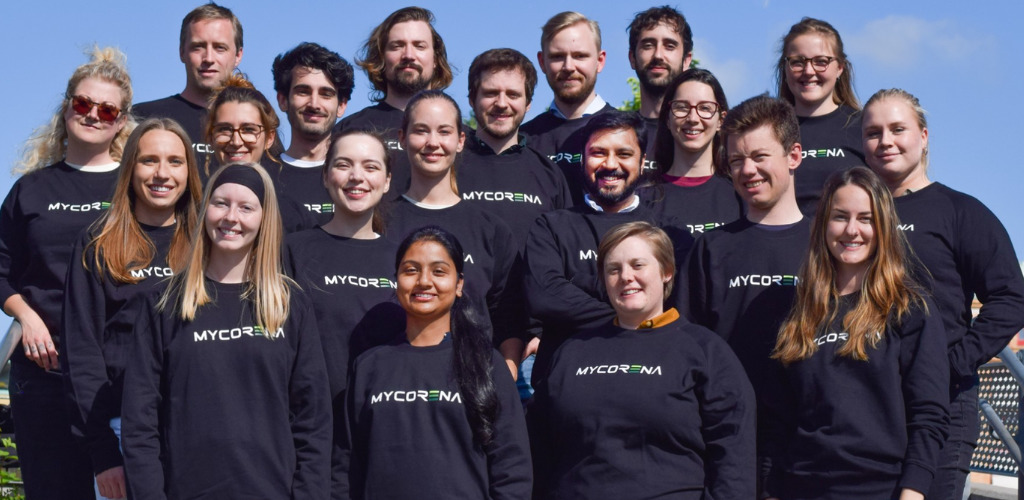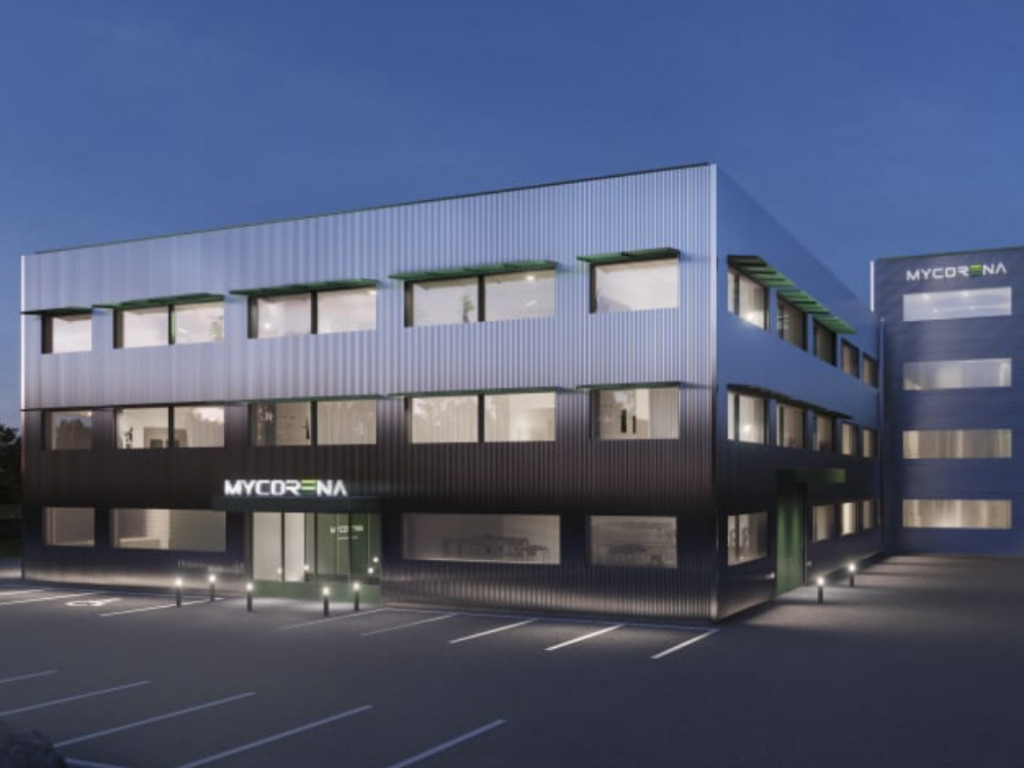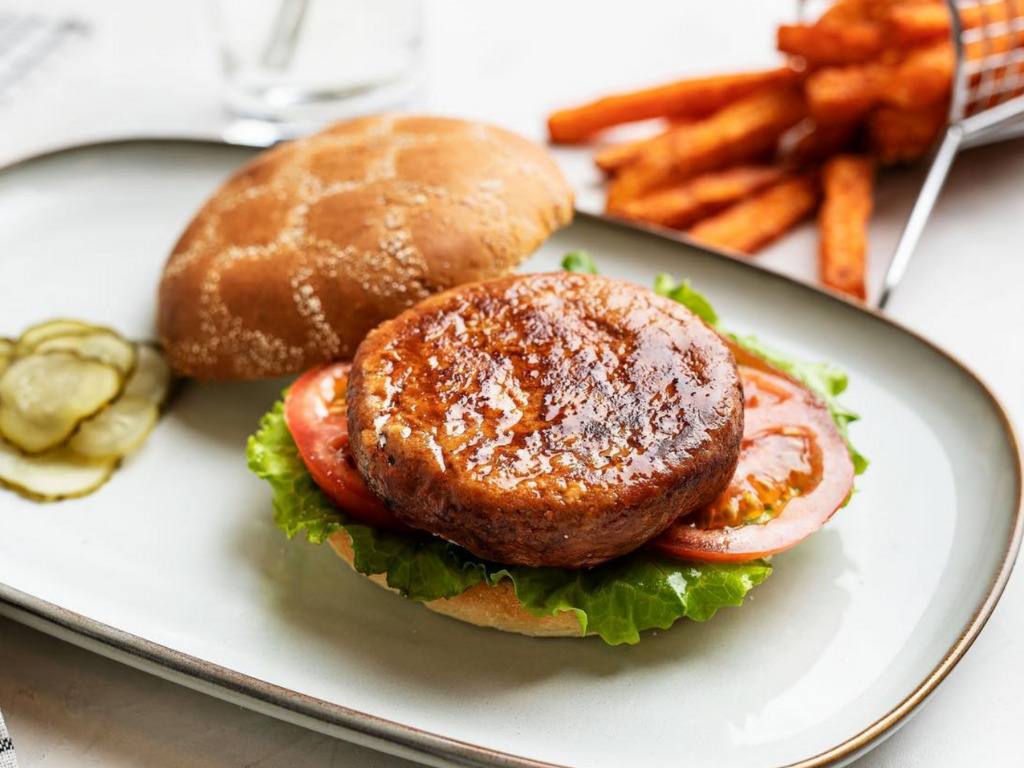4 Mins Read
Food tech Mycorena secured SEK 77 Million(approx. US$9M) in its Pre-Series A funding round to accelerate the growth of its mycoprotein Promyc and scale up its production. This is one of the largest investments made in a Nordic vegan startup.
Scandinavian mycoprotein company Mycorena closed its Pre-Series A financing round taking its total external funding to over SEK 100 million (approx. US$11M).
The round was led by Belgium-based VEOS Group, a global supplier of proteins and functional ingredients. Other participating investors included existing ones like FBG Invest and Bånt AB, two of the largest shareholders of Mycorena.
With its headquarters in Gothenburg, Sweden, the firm was founded as as a spin-out from the research conducted by founder and CEO Ramkumar Nair.
Protein grown through food waste
Its flagship fungi-based protein Promyc aims to replace animal-based protein. This sustainable ingredient is grown by taking side-streams of food in industrial processing, which would otherwise be wasted, like bread dough from bakeries. At the moment, the ingredient is produced in the company’s Gothenburg-based pilot-scale fermentation plant.

Promyc can be used as a ingredient in whole-cuts, patties, balls, mince and nuggets.
Since its operations commenced in 2017, Mycorena unveiled their first dishes created by Chef Oscar Lexö. At the moment, Promyc is being tested in Scandinavia in a wide variety of vegan products. For instance, the food-tech launched plant-based nuggets made with Promyc which are gluten-free, high in protein, fibres, zinc, and vitamin D.
In a press release seen by Green Queen, Nair said: “The capital will primarily be used to prepare the company for rapid commercialization through aggressive expansion of its team, R&D and IP capabilities, and production scaleup.”

The capital will primarily be used to prepare the company for rapid commercialization through aggressive expansion of its team, R&D and IP capabilities, and production scaleup
Ramkumar Nair, founder and CEO of Mycorena
Less water, less CO2
The company claims that developing Promyc uses 8 times less water than conventional chicken. For instance, to make 1kg of chicken, 10 bathtubs full of water is needed whereas with Promyc, you save over 8 of those.
Plus, compared to a single beef burger which creates CO2 equivalent to a 50 Km car drive, consumers would have to eat 23 Promyc burgers to create the same amount of CO2.
Robert Slee, of the VEOS Group said: “I have followed Mycorena for many years and seen how they have developed as a company. With the worldwide proteins shift in full the development, I have no doubt of the brilliant future that lies ahead of them.”
Read: Meet 18 Startups Transforming Food, From Fungi Protein To Cultured Breast Milk

‘Several thousand tons’ of fungi protein
Mycorena which announced plans to build a new production site in Falkenberg, Sweden is set to open in mid-2022. It will be a first-of-its kind that will provide the food industry with “several thousand tons” of fungi protein by 2022. The new investment will further help to achieve this project’s goals.
Jörgen Hallgren of FBG Invest said: “FBG Invest had joined Mycorena at an early stage and a mutual trust has since long been created between us and the Mycorena Team. Sustainable protein is the future of food production, and moving on to demonstrate its large-scale production, will take the company much further in its growth.”
Several companies are using fungi-based protein as a replacement to animal-based proteins. Chicago-based food tech Nature’s Fynd fungi protein ingredient dubbed Fy can be used in several meat dishes, dried pasta and noodles. It is supported by Bill Gates and Jack Ma and received FDA approval to sell its products.
Colorado-based food tech Meati Foods raised US$28 million to upgrade its fermentation alternative meats which uses mycelium extracted from root structure of mushrooms.
Lead image courtesy of Mycorena.



